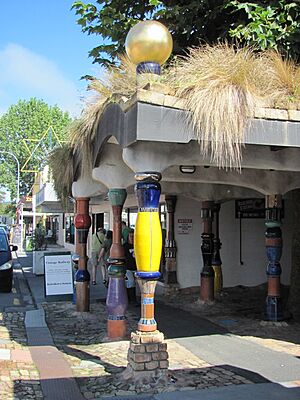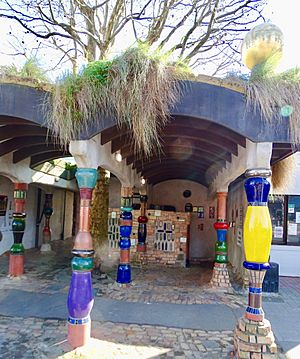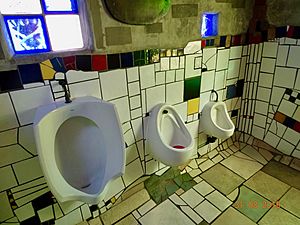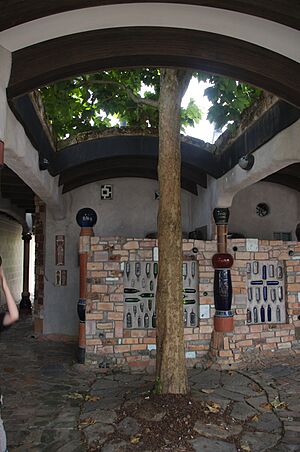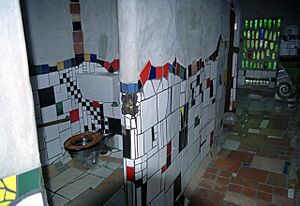Hundertwasser Toilets facts for kids
The Hundertwasser Toilets are a very special public toilet building in the town of Kawakawa, New Zealand. They are located on the main street, Gillies Street. This unique building was finished in 1999. It is named after the famous artist and architect Friedensreich Hundertwasser. He imagined and designed the whole project. These toilets are one of the few in the world that are seen as a true work of art. They are also a popular tourist attraction!
Contents
What Makes Them Special?
The Hundertwasser Toilets were designed by Friedensreich Hundertwasser. He was an artist from Austria and New Zealand. He lived near Kawakawa from 1975 until he passed away in 2000. He was 71 years old.
Hundertwasser's Unique Style
This decorative toilet block is the only project Hundertwasser designed in the Southern Hemisphere. It was also the last project he finished before he died. The building shows his typical artistic style. It has wavy lines and colourful, uneven ceramic tiles. You can also see small sculptures and bright glass pieces. A real, live tree is even part of the building's design!
Using Recycled Materials
Hundertwasser loved using recycled materials. For these toilets, he used old glass bottles from the community. He also used bricks from a former Bank of New Zealand building. He even asked that any plants removed for construction be replanted on the building's green roof. The toilets opened in 1999. They work just like any other public toilet. There are separate areas for men and women.
Why Do People Visit?
The Hundertwasser Toilets are the main attraction in Kawakawa. Many people say they are the most photographed toilets in all of New Zealand! Lots of tourists arrive by bus just to see them. Far more people visit to admire the art than simply to use the facilities.


